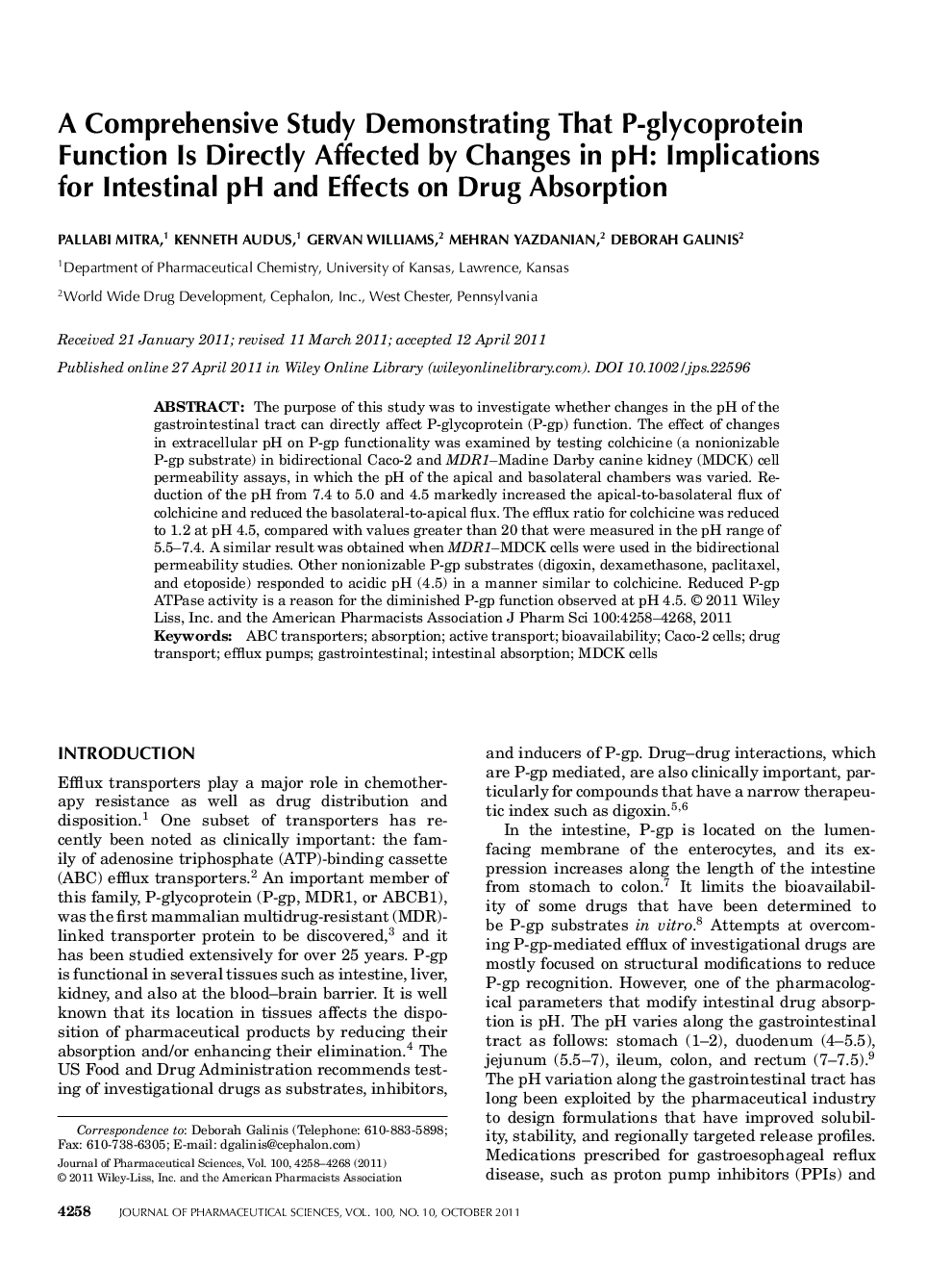| Article ID | Journal | Published Year | Pages | File Type |
|---|---|---|---|---|
| 2485279 | Journal of Pharmaceutical Sciences | 2011 | 11 Pages |
Abstract
The purpose of this study was to investigate whether changes in the pH of the gastrointestinal tract can directly affect P-glycoprotein (P-gp) function. The effect of changes in extracellular pH on P-gp functionality was examined by testing colchicine (a nonionizable P-gp substrate) in bidirectional Caco-2 and MDR1-Madine Darby canine kidney (MDCK) cell permeability assays, in which the pH of the apical and basolateral chambers was varied. Reduction of the pH from 7.4 to 5.0 and 4.5 markedly increased the apical-to-basolateral flux of colchicine and reduced the basolateral-to-apical flux. The efflux ratio for colchicine was reduced to 1.2 at pH 4.5, compared with values greater than 20 that were measured in the pH range of 5.5-7.4. A similar result was obtained when MDR1-MDCK cells were used in the bidirectional permeability studies. Other nonionizable P-gp substrates (digoxin, dexamethasone, paclitaxel, and etoposide) responded to acidic pH (4.5) in a manner similar to colchicine. Reduced P-gp ATPase activity is a reason for the diminished P-gp function observed at pH 4.5. © 2011 Wiley-Liss, Inc. and the American Pharmacists Association J Pharm Sci 100:4258-4268, 2011
Keywords
Related Topics
Health Sciences
Pharmacology, Toxicology and Pharmaceutical Science
Drug Discovery
Authors
Pallabi Mitra, Kenneth Audus, Gervan Williams, Mehran Yazdanian, Deborah Galinis,
